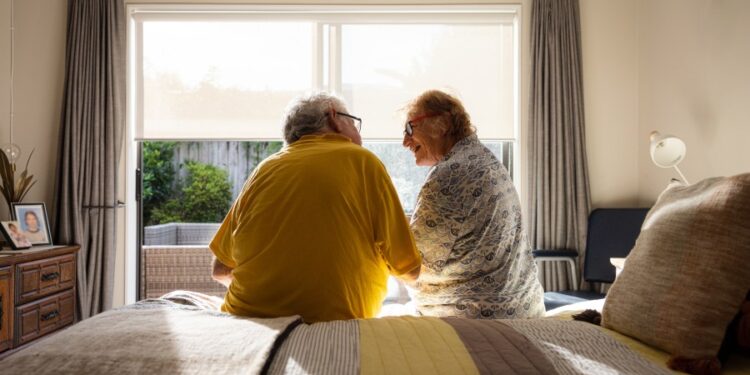
(NewsNation) — A company has made glasses that are able to assist dementia patients and give them real-time support, and they could start rolling out next year.
CareYaya’s glasses, using artificial intelligence, give people visual and audio cues to help them recognize the faces of loved ones or caregivers, recover lost objects and remember tasks and appointments.
“It’s continuously watching your visual environment and giving you assistance,” CareYaya Chief Executive Officer Neal Shah told NewsNation.
These glasses are equipped with sensors and an AI assistant, which can guide the wearer through taking medications, navigating familiar spaces or calming down during moments of confusion.
“Medication is a huge one,” Shah said. “You can take your pill bottle, hold it up, and it’ll remind you: This is the medication, this is a reminder of what you’re supposed to take it for, and then have you taken it today or not?”
With this kind of technology, Shah hopes to help older adults maintain their independence and also take some of the burden off caregivers.
“This is avoiding institutionalizing your parent,” Shah said. “Everybody’s dream is to take care of their parents, but everybody can’t do it because cost of care is too high.”
New technology could change this.
“I can’t imagine what three years, four years from now, you can do,” Shah said. “That’s my dream — to help people age in place longer.”
Right now, the glasses are in the “beta” stage of production, meaning they’re being tested for real-time use.
In January, the glasses will debut at the Consumer Electronics Show in Las Vegas, Nevada. Shah even anticipates a first version could roll out to select people by February or March.
Privacy is a big concern — AI-powered wearables collect a lot of data, which can make people nervous about how that information is stored and used.
However, when it comes to the AI glasses, the data is self-contained within the app and not disseminated.
“With dual permission of the individual and their family member, their family is able to access to keep a tab on them,” Shah explained. “So for now, there’s no personal information going outside of the closed system for each family. “
Accessibility can be another issue — the glasses need to be affordable and user-friendly to have a widespread impact.
Shah said cost is a huge consideration for their new product, and they want it to be less than $500. The “home run goal,” Shah said, would be to get it covered by insurance.
“There’s millions of people that can benefit from something like this,” Shah said, calling this assistive technology a “huge opportunity” for the aging population.
“I think that a lot of the approvals are going to start getting streamlined for health insurers and eventually even Medicare to cover,” Shah said.






